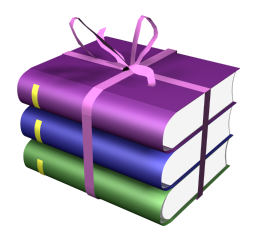The Higher Law (Translated) (Jewish Ghetto Tales from Eastern Europe) (English Edition) [Kindle-editie] beoordelingen het boek quotes
van Karl Emil Franzos
The Higher Law (Translated) (Jewish Ghetto Tales from Eastern Europe) (English Edition) [Kindle-editie]
- Unique translation- From German: "Nach dem höheren Gesetz"- AnnotatedThere was a thriving cultural life among the Jewish communities of Eastern Europe before the Holocaust. There is no finer orientation into the Jewish literature of the 19th century than through the work of Karl Emil Franzos (1848-1904).Franzos was born in the town of Chortkov in the province of Galicia (a former Austro-Hungarian Province that extended over a vast area now comprising parts of southern Poland, eastern Slovakia and western Ukraine). The son of an assimilated, liberal-minded Jewish doctor, he grew up in the city of Chernovtsy in the district of Podolia. One of the main themes in his writing is the proposed betterment of a downtrodden eastern European culture -- including the “decadence” of landed nobility and the “superstitions” of his own fellow Jews -- by the spread of German culture and customs. Related to that is another common theme, assimilation and understanding between the Jewish and the Germanic peoples, a goal which he despaired of in his later years.Franzos’s background in both secular and Jewish ecclesiastical legal issues assisted him in writing "The Higher Law." The collection in which this story first appeared, "The Jews of Barnow," was based on ghetto life in his native Chortkov. The author sought, in his own words “...the unique... charm of some subject matter that no one else had fictionalized before me. So it was above all as a writer that I went into the Podolian ghetto, and the main thing I strove for in these novellas was an artistic sense. But I didn’t try to force it at the cost of truth. Nowhere in the service of beauty have I falsified facts or circumstances, and I believe I’ve depicted this adventurous and exotic way of life in all its details precisely as it appeared to me....”The author coined a controversial phrase that was to be used and misused from then on: “Every country has the Jews that it deserves.” But he went on to explain what he meant by that: “...it’s not the fault of the Polish Jews that they’re on a different cultural level than their fellow believers in England, Germany and France. At least certainly not their fault alone... I’m not depicting the Polish Jews any better or any worse than they are, but exactly as they are. These novellas are not written to mock the Jews of the East any more than they are to glorify them....”Focusing on more than a race of people, though, "The Higher Law" makes individual archetypes come to life in a tale where the main characters are forced to seek happiness and even peace of mind by making their own rules and exploring justification by a “higher law.” The narrative tone ranges from outer comic humor to inner tragedy. In the person of Nathan Silberstein we meet a personality with traits of selfless devotion and an almost Messianic feel for atonement. Carrying tolerance to a fault, he seems a somewhat distorted version of the great literary model of Jewish tolerance, another Nathan, Gotthold Ephraim Lessing’s "Nathan the Wise."
Populaire auteurs
Cram101 Textbook Reviews (949) J.S. Bach (447) Wolfgang Amadeus Mozart (305) Collectif (268) Schrijf als eerste een recensie over dit item (259) Doug Gelbert (238) Princess of Patterns (211) Charles Dickens (209) R.B. Grimm (197) Carolyn Keene (187) Jules Verne (183) Philipp Winterberg (180) William Shakespeare (174) Youscribe (172) Lucas Nicolato (169) Edgar Allan Poe (166) Herman Melville (166) Anonymous (165) Gilad Soffer (164) Robert Louis Stevenson (159)Populaire gewichtsboeken
418 KB 425 KB 435 KB 459 KB 445 KB 439 KB 386 KB 413 KB 493 KB 432 KB 455 KB 471 KB 421 KB 451 KB 485 KB 472 KB 416 KB 369 KB 419 KB 427 KB![The Higher Law (Translated) (Jewish Ghetto Tales from Eastern Europe) (English Edition) [Kindle-editie] beoordelingen The Higher Law (Translated) (Jewish Ghetto Tales from Eastern Europe) (English Edition) [Kindle-editie] beoordelingen](http://files-castle.com.website.yandexcloud.net/books/932a1babc030d237fab229f3235aa226.jpg)



![The Ecology of Large Mammals in Central Yellowstone: Sixteen Years of Integrated Field Studies (Terrestrial Ecology) [Print Replica] [Kindle-editie]](http://files-castle.com.website.yandexcloud.net/books/47637d5709655a3ac1e00bdbe0023501.jpg)
![American Society: Toward a Theory of Societal Community (The Yale Cultural Sociology Series) [Kindle-editie]](http://files-castle.com.website.yandexcloud.net/books/e656a5ba9beb4980466199f84caa5dc5.jpg)
![An Introduction to the New Testament (The Anchor Yale Bible Reference Library) [Kindle-editie]](http://files-castle.com.website.yandexcloud.net/books/11998361cce2d09b8f5e2d7841aeaf44.jpg)
![The Excavations at Dura-Europos conducted by Yale University and the French Academy of Inscriptions and Letters 1928 to 1937. Final Report VII: The Arms and Armour and other Military Equipment [Kindle-editie]](http://files-castle.com.website.yandexcloud.net/books/b083dbd834371c72fe29483e7fb7a741.jpg)
![Tennyson: A Selected Edition (Longman Annotated English Poets) [Kindle-editie]](http://files-castle.com.website.yandexcloud.net/books/e2d6c6325809631ee40b4c459480131e.jpg)
![Promotional Cultures: The Rise and Spread of Advertising, Public Relations, Marketing and Branding [Kindle-editie]](http://files-castle.com.website.yandexcloud.net/books/2d9f275960c00bed2f2cd3577d4d91dc.jpg)
![Introduction to Time Series Modeling (Chapman & Hall/CRC Monographs on Statistics & Applied Probability) [Print Replica] [Kindle-editie]](http://files-castle.com.website.yandexcloud.net/books/5504443576ef4910627142ec4baea5e0.jpg)
![Robustness in Statistics [Print Replica] [Kindle-editie]](http://files-castle.com.website.yandexcloud.net/books/a0ac649051827c7368c591c5977b005a.jpg)
![Advances in Growth Curve Models: Topics from the Indian Statistical Institute: 46 (Springer Proceedings in Mathematics & Statistics) [Kindle-editie]](http://files-castle.com.website.yandexcloud.net/books/189ec8f2d5ef82f57216fa4d73a5e342.jpg)
![Progress in Partial Differential Equations: Asymptotic Profiles, Regularity and Well-Posedness (Springer Proceedings in Mathematics & Statistics) [Print Replica] [Kindle-editie]](http://files-castle.com.website.yandexcloud.net/books/b31afae00ab76fa3dbc8be90c6334c55.jpg)
![Bayesian Filtering and Smoothing (Institute of Mathematical Statistics Textbooks, 3) [Kindle-editie]](http://files-castle.com.website.yandexcloud.net/books/52c7a1fdcb0f73cd5f1f666f9fdca85e.jpg)
![Forecasting with Exponential Smoothing: The State Space Approach (Springer Series in Statistics) [Print Replica] [Kindle-editie]](http://files-castle.com.website.yandexcloud.net/books/6201219f8a52cb1e3fd4a3ba055439fc.jpg)
![Novellen um Liebe und Ehe [Kindle-editie]](http://files-castle.com.website.yandexcloud.net/books/bcde748f3322181a507d719e7bab0504.jpg)
![Der Stumme (German Edition) [Kindle-editie]](http://files-castle.com.website.yandexcloud.net/books/6323f585b88b63bea57e70a1e3144d6f.jpg)
![Der Bart des Abraham Weinkäfer (German Edition) [Kindle-editie]](/img/no-book.jpg)
![Works of Karl Emil Franzos (English Edition) [Kindle-editie]](http://files-castle.com.website.yandexcloud.net/books/d909c442e23c2333634208965bb0f6ed.jpg)
![Der Pojaz (German Edition) [Kindle-editie]](http://files-castle.com.website.yandexcloud.net/books/c6e613ff1155084bc70123ae79ab45c5.jpg)
![Das Kind der Sühne (German Edition) [Kindle-editie]](http://files-castle.com.website.yandexcloud.net/books/a9860362729b47cd0b703ba0d705b0b2.jpg)
![Leib Weihnachtskuchen und sein Kind (German Edition) [Kindle-editie]](http://files-castle.com.website.yandexcloud.net/books/6c574bc08aca8ae58e4e9bf60c9b15b8.jpg)
![Ein Kampf ums Recht [Kindle-editie]](http://files-castle.com.website.yandexcloud.net/books/822e5b21ce20f3e3a33256bd63f13505.jpg)
![Aus Halb-Asien (German Edition) [Kindle-editie]](http://files-castle.com.website.yandexcloud.net/books/45f8fbbe575bf1a785435fb82f107a3e.jpg)
![Aus den Vogesen [Kindle-editie]](http://files-castle.com.website.yandexcloud.net/books/1079ed2ec355a77dce29423c3a3ef20b.jpg)
![Aus Anhalt und Thüringen [Kindle-editie]](http://files-castle.com.website.yandexcloud.net/books/803d44a7da9126ddf114dfdfe09928b2.jpg)